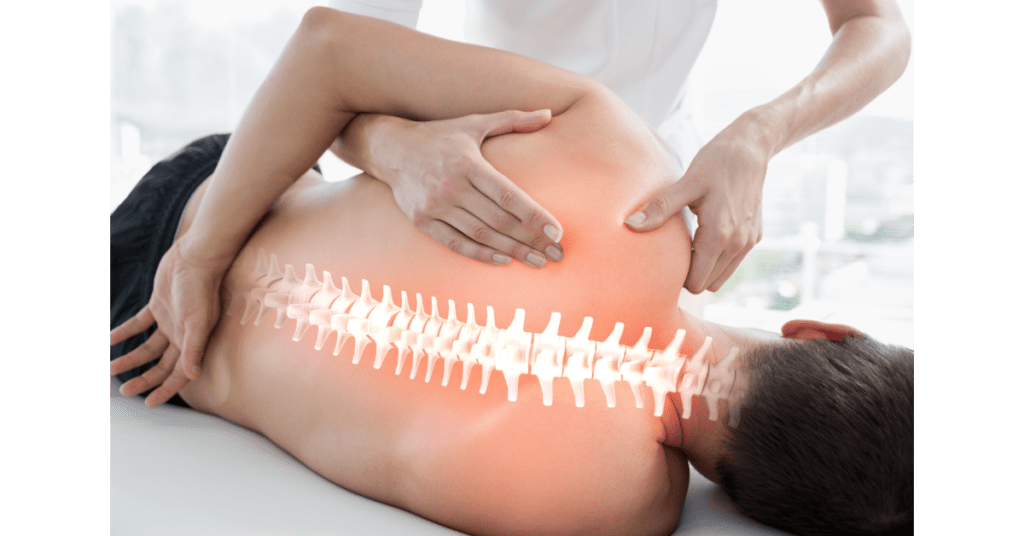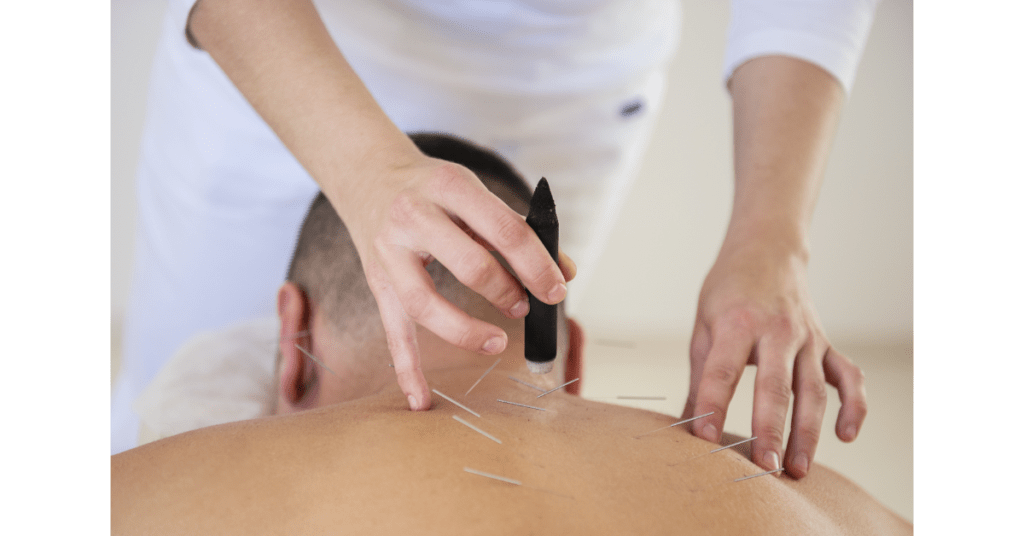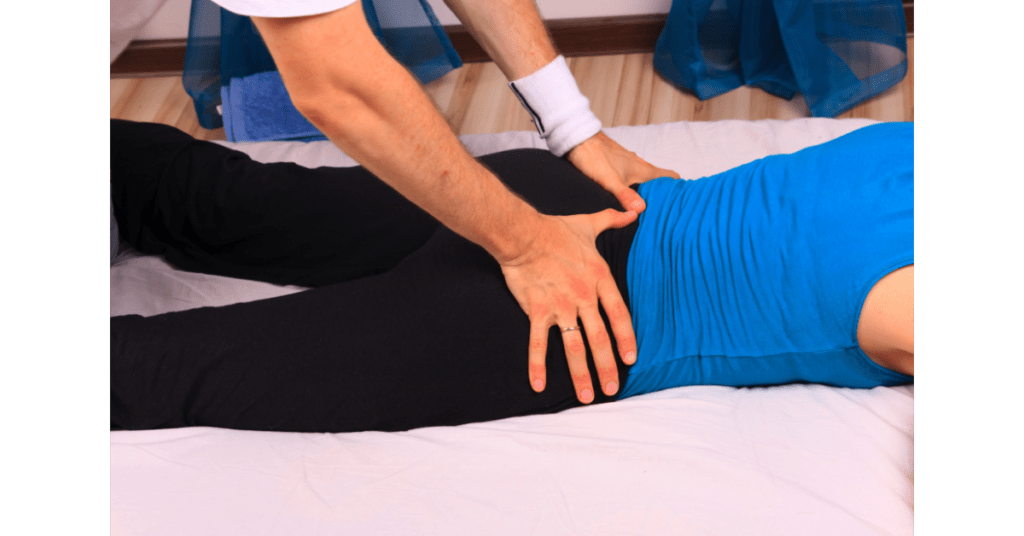What is Frozen Shoulder?

Frozen shoulder is a painful condition of the shoulder, making it difficult to lift or move the shoulder due to tightening and thickening of the shoulder capsule.
What is a Shoulder Capsule?
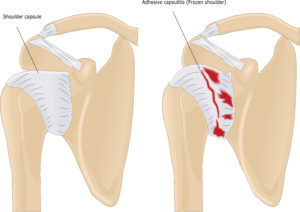
The shoulder capsule is the strong connective tissue that surrounds the bones, ligaments and tendons that form part of the shoulder joint and where the upper arm bone fits into the shoulder blade socket.
What are the Stages of Frozen Shoulder?
Frozen shoulder happens in three stages and may last anywhere between one to three years.
Stage 1 is called Freezing and can last anywhere between six weeks to nine months. In this stage, the shoulder slowly loses range of motion, as pain and stiffness increase gradually. Routine activities, such as reaching and stretching, become more difficult and painful.
Stage 2 is called Frozen and lasts between four to twelve months. In this stage there is a decrease in pain, but the shoulder continues to remain stiff, and the muscle may begin to waste away. Daily movements, such as lifting the arm over the head, may be difficult or impossible.
Stage 3 is called Thawing and lasts between six months to two years. In this stage, the range of motion in the shoulder slowly improves and other symptoms gradually decrease.
What Causes Frozen Shoulder?
The exact cause of frozen shoulder is still not fully known. Some known risk factors can increase your chance of developing frozen shoulders such as Diabetes, Hypothyroidism, Hyperthyroidism, Parkinson’s disease, Cardiac disease, Stroke, Shoulder injury, Shoulder surgery or Being immobile for a period as well as Gender and Age. Frozen shoulder is most common in people aged between 40-60 years, and also more common among women.
What are the Signs and Symptoms of Frozen Shoulder?
The most common signs and symptoms of frozen shoulder include stiffness in the shoulder, shoulder pain, and a reduced range of motion in the shoulder joint. Other symptoms of frozen shoulder are Difficulty in sleeping on the affected side, Unable to lift the arm over the head, Cannot reach the arm into the back pocket, Pain when moving the shoulder, Pain over the outer shoulder and occasionally the upper arm and shoulder pain that gets worse at night.
Are you looking for physiotherapy or a Chiropractor? If Yes, then visit Simply Align Rehab Physio in Scarborough/Toronto or Woodbridge/Vaughan or you can always call or text us for your Physiotherapy or Chiropractor needs in Toronto at (416) 438-3230 or For Physiotherapy or Chiropractor need in Vaughan (Woodbridge) at (905) 638-9840.
How is Frozen Shoulder Treated?
The main purpose of the treatment is to reduce pain and inflammation and restore movement to the shoulder. Symptoms of frozen shoulder can be managed at home through Physiotherapy, Medication, Hydrodilatation, and Surgery. As part of Physiotherapy, Stretching, and pain-relieving exercises help increase range of motion and reduce recovery time. Over-the-counter Medications such as Aspirin or ibuprofen help in easing the pain and swelling. Cortisone injections injected directly into the joint, (cortisone is an anti-inflammatory medication) help in alleviating the pain and swelling. Through Hydrodilatation, large amounts of fluid are injected into the shoulder capsule to help stretch and expand it. This procedure is more invasive and is used only when other treatments are not successful. In Arthroscopic shoulder surgery, small cuts are made in the tightest parts of the shoulder capsule. Physiotherapy has proved to be effective in lowering the recovery time of frozen shoulder to around six months. Again, depending on the stage of the frozen shoulder, a physiotherapist may use any of the following treatments: Heat and cold therapy, Gentle passive stretching, Range of motion exercises, Trigger point dry needling, Therapeutic ultrasound, Transcutaneous electrical nerve stimulation (TENS). At our clinic we have notice by using Simply Align Technique which includes advance physical modalities, activity modification and specific exercises we have faster, longer lasting results with reduced healing time.
In the video below you can see how we use TECAR therapy to improve ROM that is common in frozen shoulder. This new unique and rare technology is conveniently available at both of our locations in Toronto (Scarborough) and Vaughan (Woodbridge).
Can Frozen Shoulder Go Away On Its Own?
Yes, after going through all the three stages, the frozen shoulder goes away on its own, in one to three years. However, the recovery time can be reduced to six months, if you seek physiotherapy treatment. This will also reduce the pain and improve your range of motion.
Can you Prevent Frozen Shoulder?
Yes, frozen shoulder can be prevented. One of the most common causes of frozen shoulder is immobility (not being able to move) after surgery, broken arm, or stroke. Consult a physiotherapist after an injury, illness or accident, about preventative care for frozen shoulder.
